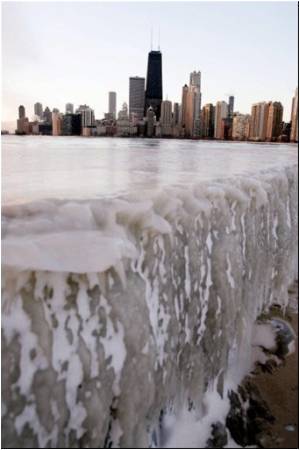A rise of 1.5 degrees Celsius in mercury is likely to melt the permanently frozen ground over a large chunk of Siberia.

"As permafrost covers 24 percent of the land surface of the northern hemisphere, significant thawing could affect vast areas and release gigatonnes of carbon," said Anton Vaks from the Oxford department of earth sciences, who led the research.
"For instance, natural gas facilities in the region, as well as power lines, roads, railways and buildings are all built on permafrost and are vulnerable to thawing. Such a thaw could damage this infrastructure with obvious economic implications," adds Vaks, the journal Science Express reports.
The data comes from a team of researchers from Britain, Russia, Mongolia and Switzerland studying stalactites and stalagmites from caves located along the "permafrost frontier", where ground begins to be permanently frozen in a layer tens to hundreds of metres thick, according to an Oxford statement.
"The stalactites and stalagmites from these caves are a way of looking back in time to see the effects of warm periods similar to our modern climate," says Vaks.
Because stalactites and stalagmites only grow when liquid rainwater and snow melt drips into the caves, these formations record 500,000 years of changing permafrost conditions, including warmer periods similar to the climate today.
Advertisement
The team used radiometric dating techniques to date the growth of cave formations (stalactites and stalagmites).
Advertisement
Source-IANS








